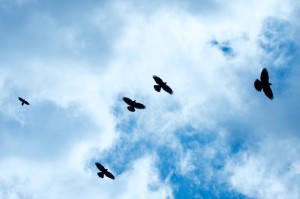Shakespeare’s Sonnet #70 “That thou art blamed shall not be thy defect”
Sonnet 70
That thou art blamed shall not be thy defect,
For slander’s mark was ever yet the fair;
The ornament of beauty is suspect,
A crow that flies in heaven’s sweetest air.
So thou be good, slander doth but approve
Thy worth the greater, being wooed of time,
For canker vice the sweetest buds doth love,
And thou present’st a pure unstainèd prime.
Thou hast passed by the ambush of young days,
Either not assailed or victor being charged;
Yet this thy praise cannot be so thy praise,
To tie up envy evermore enlarged.
If some suspect of ill masked not thy show,
Then thou alone kingdoms of hearts shouldst owe.
Reading of Sonnet 70
The images in the YouTube video are from an original 1609 edition of Shake-speares Sonnets held by the British Library. It is one of only thirteen copies in existence. Images courtesy of the Octavo Corporation.
Text from Original 1609 Quarto
Transcription courtesy of University of Virginia Library:
That thou are blam’d shall not be thy defect,
For slanders marke was euer yet the faire,
The ornament of beauty is suspect,
A Crow that flies in heauens sweetest ayre.
So thou be good, slander doth but approue,
Their¹ worth the greater beeing woo’d of time,
For Canker vice the sweetest buds doth loue,
And thou present’st a pure vnstayned prime.
Thou hast past by the ambush of young daies,
Either not assayld, or victor beeing charg’d,
Yet this thy praise cannot be soe thy praise,
To tye vp enuy, euermore inlarged,
If some suspect of ill maskt not thy show,
Then thou alone kingdomes of hearts shouldst owe.
Wording differences between the text and the reading are noted with a superscript:
¹ Thy
